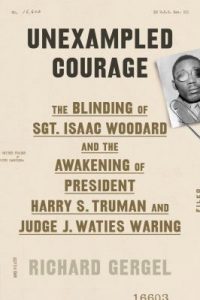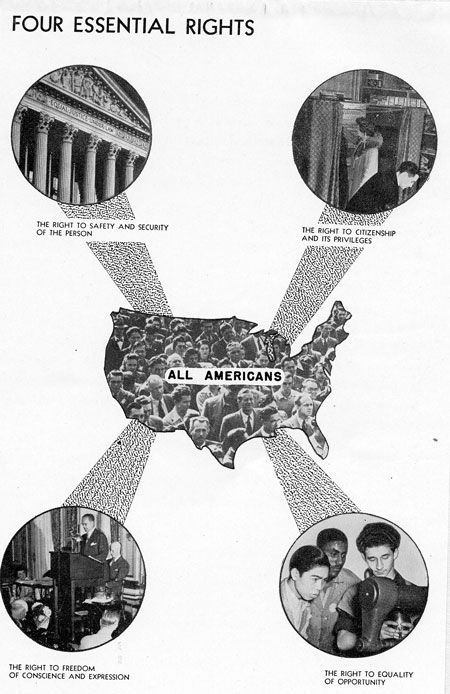
By Andy Brack, editor and publisher | The forced segregation that stained the American South isn’t as far in the past as you may think.
 A century ago when your great grandparents were toddlers or were raising their own, lynchings were commonplace. It wasn’t until after World War II that an American president, Harry Truman, ended segregation in the armed forces. The U.S. Supreme Court ruled separate was not equal in public schools in 1954, although in reality it took one or two more decades for many schools to integrate, including the segregated elementary school I attended in south Georgia.
A century ago when your great grandparents were toddlers or were raising their own, lynchings were commonplace. It wasn’t until after World War II that an American president, Harry Truman, ended segregation in the armed forces. The U.S. Supreme Court ruled separate was not equal in public schools in 1954, although in reality it took one or two more decades for many schools to integrate, including the segregated elementary school I attended in south Georgia.
The push to end the stain of segregation got a big start in South Carolina, U.S. District Judge Richard Gergel writes in his fascinating 2019 book, “Unexampled Courage: The Blinding of Sgt. Isaac Woodard and the Awakening of President Harry S. Truman and Judge J. Waties Waring.”
Gergel traces the case of a black Army sergeant traveling home in uniform from World War II. He was beaten, blinded and arrested in Batesburg, S.C., after a bus driver reported the veteran for talking back when refused a bathroom stop.
 Isaac Woodard’s case ended up getting national attention, including notice by Truman, who was outraged that a man who fought for freedom would be crippled because of the Jim Crow South. Despite the approaching election year, Truman established the first presidential commission on civil rights.
Isaac Woodard’s case ended up getting national attention, including notice by Truman, who was outraged that a man who fought for freedom would be crippled because of the Jim Crow South. Despite the approaching election year, Truman established the first presidential commission on civil rights.
By 1948, the commission published a 178-page report that outlined the importance of protecting and preserving the civil rights guaranteed to all Americans. About the same time, a brave federal judge in Charleston, also vexed by the Woodard case and simmering injustice, started to issue rulings that stabbed at the core of segregation in politics and schools. The dissent of the late U.S. District Judge J. Waties Waring in a Clarendon County school desegregation case had a strong impact and, many say, was the blueprint for the U.S. Supreme Court’s landmark Brown v. Board ruling that separate schools were not equal.
Two South Carolina incidents — the tragic blinding of a veteran and a ruling that sent a case to the Supreme Court — are at the root of the end of legal segregation in the country.
Truman’s landmark report called for freedom from fear for all Americans. “The preservation of civil liberties is a duty of every Government — state, Federal and local,” the report said. “Wherever the law enforcement measures and the authority of Federal, state, and local governments are inadequate to discharge this primary function of government, these measures and this authority should be strengthened and improved.”

The report then outlined four essential rights of all Americans — the right to safety and security, the right to citizenship and its privileges, the right to freedom of conscience and expression, and the right to equality and opportunity. Authors shared myriad suggestions for improving civil rights, such as desegregating the armed forces, strengthening the civil rights power of the U.S. Justice Department, reducing injustice, curbing police brutality, enhancing voting rights and updating citizenship laws.
Many of the recommendations in the report were implemented, but its soul — of dealing with immigration, citizenship, voting rights, injustice, due process, equal opportunity and equal protection under the law — still haunts America. Just look at headlines on any day of the week.
America needs to renew its commitment to the ideals in Truman’s Committee on Civil Rights.
“I have one priority that applies to all civil rights,” U.S. Rep. Jim Clyburn, D-S.C., told Statehouse Report this week. “It is the message on my billboards that reads: ‘Making America’s greatness accessible and affordable for all.’
“This priority applies to education: make it accessible and affordable; health care: make it accessible and affordable; housing: make it accessible and affordable. Any civil rights issue should be addressed in terms of accessibility and affordability.”
Failing to finish the work of civil rights protections for all Americans violates the country’s basic principles, said State Rep. Gilda Cobb Hunter, D-Orangeburg. But she warned a renewed commitment to civil rights “isn’t going to fare any better than the old one without a commitment to change things.”
Let’s have the courage of Woodard, Truman and Waring and make change for a more perfect union.
- Have a comment? Send to: feedback@statehousereport.com.


